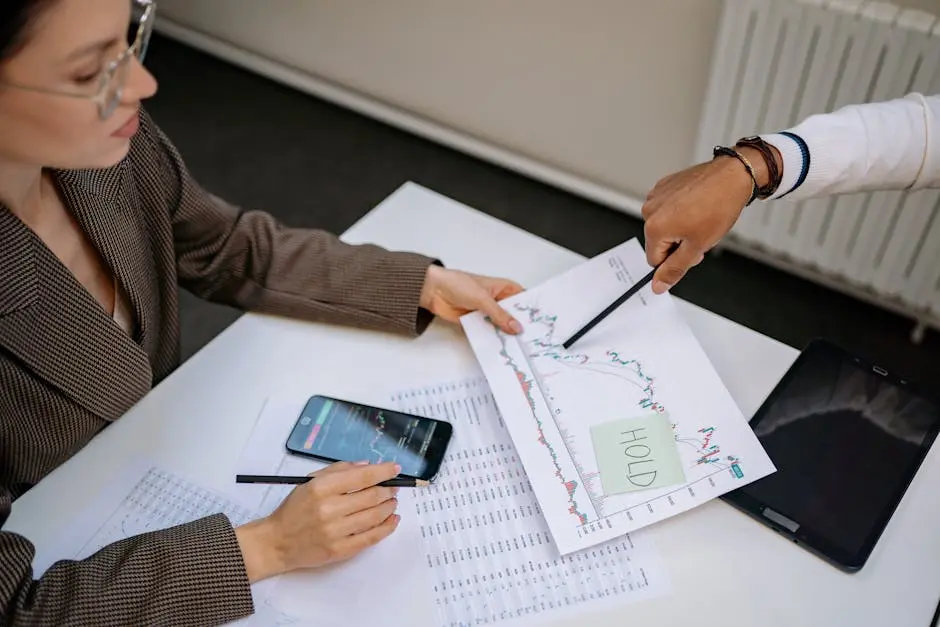In financial markets, trade desks play a crucial role in executing trades and managing investment strategies. This blog will explore what a trade desk does, who operates them, and their impact on trading efficiency and market dynamics.
What is a Trade Desk?
A trade desk is a dedicated department within a financial institution responsible for buying and selling securities.
At its core, a trade desk acts as the execution arm of a trading strategy; it takes the complex decisions made by investors and translates them into actual trades.
The operations of a trade desk are vital for ensuring that transactions occur smoothly and efficiently, often navigating the fast-paced nature of the financial markets.
Whether executing trades on behalf of asset managers or monitoring market trends, trade desks are essential in the lifecycle of a financial transaction.
Functions of a Trade Desk
Trade desks execute orders, manage risk, and analyze market data to inform trading strategies.
One of the primary functions involves the swift execution of buy and sell orders. Speed is critical here—markets can change rapidly, and a delay could mean the difference between profit and loss.
Risk management is another cornerstone of a trade desk’s duties. Analysts continuously evaluate market conditions to mitigate risks and protect investments.
Moreover, the analysis of market data allows traders to identify trends and opportunities, which can be pivotal to investment success. In today’s technology-driven environment, many trade desks utilize advanced algorithms to aid in decision-making.
Types of Trade Desks
There are several types of trade desks, including those focused on equities, fixed income, derivatives, and currencies.
Equity desks primarily deal with stocks, ensuring optimal buying and selling strategies to maximize returns on investments in the stock market.
On the other hand, fixed income desks focus on bonds and other debt instruments, paying close attention to interest rates and credit risks.
Similarly, derivatives desks are specialized in trading financial contracts whose value is derived from underlying assets—this segment can be quite complex and requires significant expertise.
Lastly, currency desks manage the ebb and flow of forex trading, capitalizing on fluctuations in exchange rates while considering global economic factors.
Who Works at a Trade Desk?
Traders, analysts, and risk managers typically operate at trade desks, each playing a unique role in the trading process.
Traders are the frontline operatives who make buy or sell decisions based on market analysis and strategies developed by their teams.
Analysts are tasked with gathering and interpreting data—they provide the insights that traders rely on to make informed decisions.
Risk managers, on the other hand, focus on safeguarding the institution’s capital by assessing risk exposure associated with various trading activities.
It’s often a collaborative environment, where team members work closely together to respond to market changes, ensuring a holistic approach to trading.
Impact of Trade Desks on Financial Markets
Trade desks help maintain liquidity, reduce transaction costs, and ensure market efficiency.
Liquidity is critical for healthy markets; it allows investors to enter and exit positions without excessive price fluctuations. Trade desks facilitate this by constantly buying and selling, ensuring that there’s enough volume to support trades.
By optimizing trade execution and minimizing unnecessary delays, they also help lower transaction costs, which is beneficial for all participants in the market.
Additionally, trade desks contribute to price discovery by providing real-time information about supply and demand, which helps maintain a balanced and fair marketplace.
Future of Trade Desks
With technological advancements, the future of trade desks will likely involve increased automation and data analysis.
Artificial intelligence and machine learning are becoming more prevalent, allowing trade desks to automate routine tasks and focus on strategic decision-making.
As the financial landscape evolves, trade desks will need to adapt to new regulations, tools, and market conditions, making flexibility and continuous learning vital.
Looking ahead, the integration of more sophisticated analytical tools will empower trade desks to refine their strategies, ultimately enhancing their efficiency and effectiveness in executing trades.
Conclusion
Understanding the role of a trade desk is essential for anyone looking to grasp the complexities of financial markets. From executing trades to optimizing strategies, trade desks are key players in the financial ecosystem.

